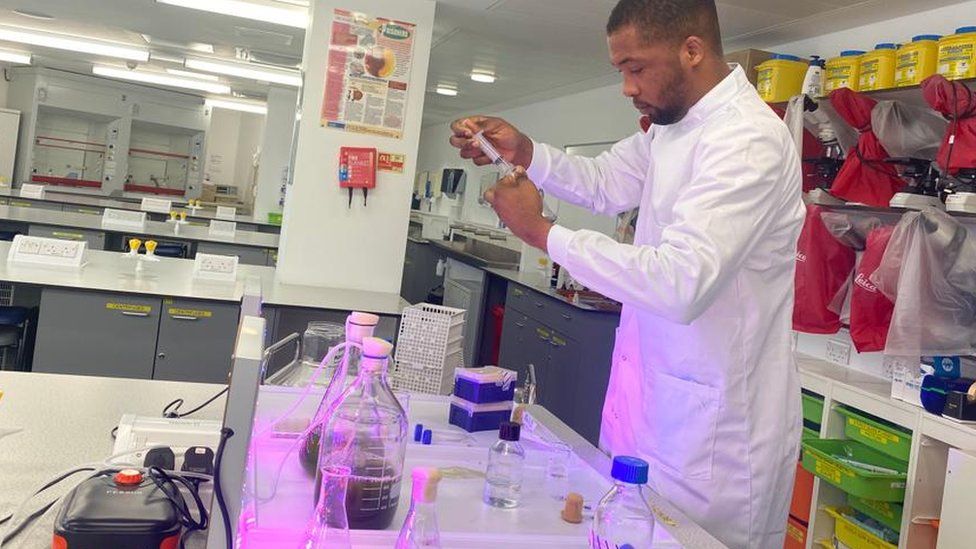Leading firms have begun a scheme to help Black students get jobs as chemistry researchers. The initiative follows an investigation which found that racism was pervasive in chemistry research.
There is just one Black chemistry professor in the UK and black people in the field are less well paid and less likely to get promotions. The ‘Broadening Horizons’ initiative is led by the RSN (Royal Society of Chemistry), with its chief executive, Dr Helen Pain, saying the aim is to make a change in getting Black people in particular to pursue a career in science.
The RSC's investigation, published in March, found that racism was 'pervasive' in the chemical sciences and talented students and early stage researchers were leaving the profession at every stage of their career.
Chemist, Victor Ifeanyi, applied for 15 jobs in the chemical science industry, with none being successful. The problem of racism is not exclusive to chemistry.
The RSC is among several scientific bodies and universities who say they are trying to solve the problem. An investigation found that in chemistry, Black and ethnic researchers are less likely to get grant funding or promotions and are paid significantly less.
In 2019/20 the average grant for a minority ethnic chemical sciences researcher was £320,000, compared with £355,000 for White colleagues. The RSC investigation went beyond the situation in chemical sciences.
It also highlighted that 37% of FTSE 100 companies have no representation of Black and ethnic people on their board, despite a target set by an independent review, also in 2016, to have one director from a minority ethnic background on every board by 2021. According to Dr Pain, the report shocked a number of chemistry-led industries into action.
Several firms are working with the RSC to provide Black and ethnic students studying in the UK and the Republic of Ireland with mentoring, industrial experience and the opportunity to apply for internships over three years. Among them are RSSL, Syngenta, Unilever, GSK, Nanopore Technologies, AM Technology, Astra Zeneca, Johnson Matthey and BASF.
As the UK's only Black chemistry professor, Robert Mokaya’s applications for research grants to the country's main funding body were all turned down. Grace Odunlade is among 94 students who are about to begin the scheme.
A third year undergraduate studying medicinal chemistry at Trinity College, Dublin, her parents arrived in Ireland from Nigeria when she was two and she believes the scheme will be a big help in getting a career in chemistry.
"I am a first-generation immigrant's child,” she said, “so my parents didn't have the network that many people in my course have.
"Over the summer, some people were talking about internships they had obtained and how they had got them through family friends. I can't say the same because of my background."
Fellow Nigerian, Victor Ezeajughu, studied for a masters degree in pharmaceutical science at Robert Gordon University in Aberdeen, and has been applying for jobs in the UK. So far he has applied for 15 jobs. None have been successful.
He said: "Various organisations say they are for diversity and equal opportunities, but that is only talk. None of them actually do." But he feels that the Broadening Horizons scheme will make a difference to his job prospects.
"It brings me closer to the organisations that I'd really love to work with, such as GSK and AstraZeneca, Victor said. "I am going to see the board of directors and the main brains in these companies one-on-one, and I am going to be able to communicate with them and express myself."
UCL's Global Vice President for skincare research, Jason Harcup, added: "We see a disproportionate loss of talent, especially in leadership positions, and that is a loss to the economy. The springboard into those positions is experience, and that is what the Broadening Horizons Programme offers."
















